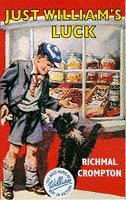'a puzzle to be solved'
I didn't know what I was going to do but I seemed to be doing it anyway.
The clarion call of the existential thriller. Hugo Wilcken's debut novel, published in 2001, centres around Matthew Bourne (no, not the choreographer responsible for that all-male Swan Lake), a high flyer within a human rights agency. He seems to be very much in control of his life with a long term partner and daughter, his success at work resulting in a high-profile case in which he hopes to save a political prisoner from the death penalty. As he's told in the opening chapter a case like this could provide him with the one thing that might be said to be missing from his life: meaning.
It's a strange feeling when you've played a part in saving someone's life. Almost like you've saved your own.
Even as he sits down to work on the strategy for the campaign with his colleague Christian the event happens that will change the trajectory of his life. A phone call informs Christian that his wife has been killed in an accident and Bourne, seeing how incapable the news has rendered him, offers to drive him to the hospital in Oxford. What he doesn't expect is to be the man who is asked to identify the body after Christian breaks down in the hospital.
She was lying on the trolley, two white sheets draped over her...The morgue assistant wheeled the body over to us, then removed the sheets from her face...A long, faint scratch mark crossed her high forehead diagonally from left to right, like a line drawn across a page to strike it out.
This is a strange enough experience on its own but it becomes just the first of many, all of which seem to take place in an atmosphere of growing menace and cruelty. As Bourne attempts to focus on the task of saving a man's life in another country his own life begins to unravel. An affair begins after a chance meeting at a party, the detached tone of the prose keeping any passion well covered. But the cracks in his own relationship at home are there beforehand and skilfully evoked by Wilcken. Bourne's daughter becomes an almost sinister presence, her innocent utterings appearing to carry huge significance. There are times when any parent might go through a phase of not getting on so well with their child but for Bourne it feels far more poisonous. His partner Marianne, who is French conducts more and more conversations with her daughter in her native tongue, excluding Bourne from their content. His daughter screams loudly when he tries to pick her up and often makes statements which leave him baffled, are they innocent or not? Throughout the book a teddy bear, that most childish of objects, becomes a huge symbol. The stitching attaching its neck comes loose, gradually unravelling as the book progresses. What could serve at first as a reminder of Bourne's work to save a man from execution comes to symbolise something else when that work occupies less and less of his thoughts; the disintegration of his family.
I sit at my desk and wonder what it must be like for him, in a prison cell and preparing to die. Would there be a constant tension and anxiety or would that dissipate after a while? Would it come and go? Would there be hope? Would you end up getting used to the situation, in the way that ordinary people can seemingly get used to anything.
Bourne has his own shocks to get used to and Wilcken creates an unnerving atmosphere around him. As the cover suggests it has the drive of a thriller but the uncertainty of a far more philosophical novel. It isn't a particularly optimistic view of life, neither the men (cold, heartless) nor the women (ruthless, deceitful) come out of it particularly well and even the child, as I have said above, casts a long shadow, so its a book which might leave a bitter taste in your mouth. But it's certainly an interesting début and shows the beginnings of the skill with which Wilcken was able to produce such a suffocating and uncertain atmosphere in his second novel, Colony.
When Hugo got in contact to thank me for reviewing Colony I took the opportunity to ask him a few questions. Come back here in a few days and you'll be able to see that interview.







3 comments:
Great stuff William! I'm holding off reading The Execution until I'm in the reading doldrums and need something to perk me up. Coldness notwithstanding, I'm certain it will provide a fine literary boost.
I just read and reviewed Colony on my blog, and now I'm anxious to read The Execution. Hope to get there soon, and I'm encouraged here.
I think you will both enjoy it, another book which transcends its genre and leaves you thinking about it afterwards. As a form of literary medication John it should be just what the doctor ordered.
Post a Comment